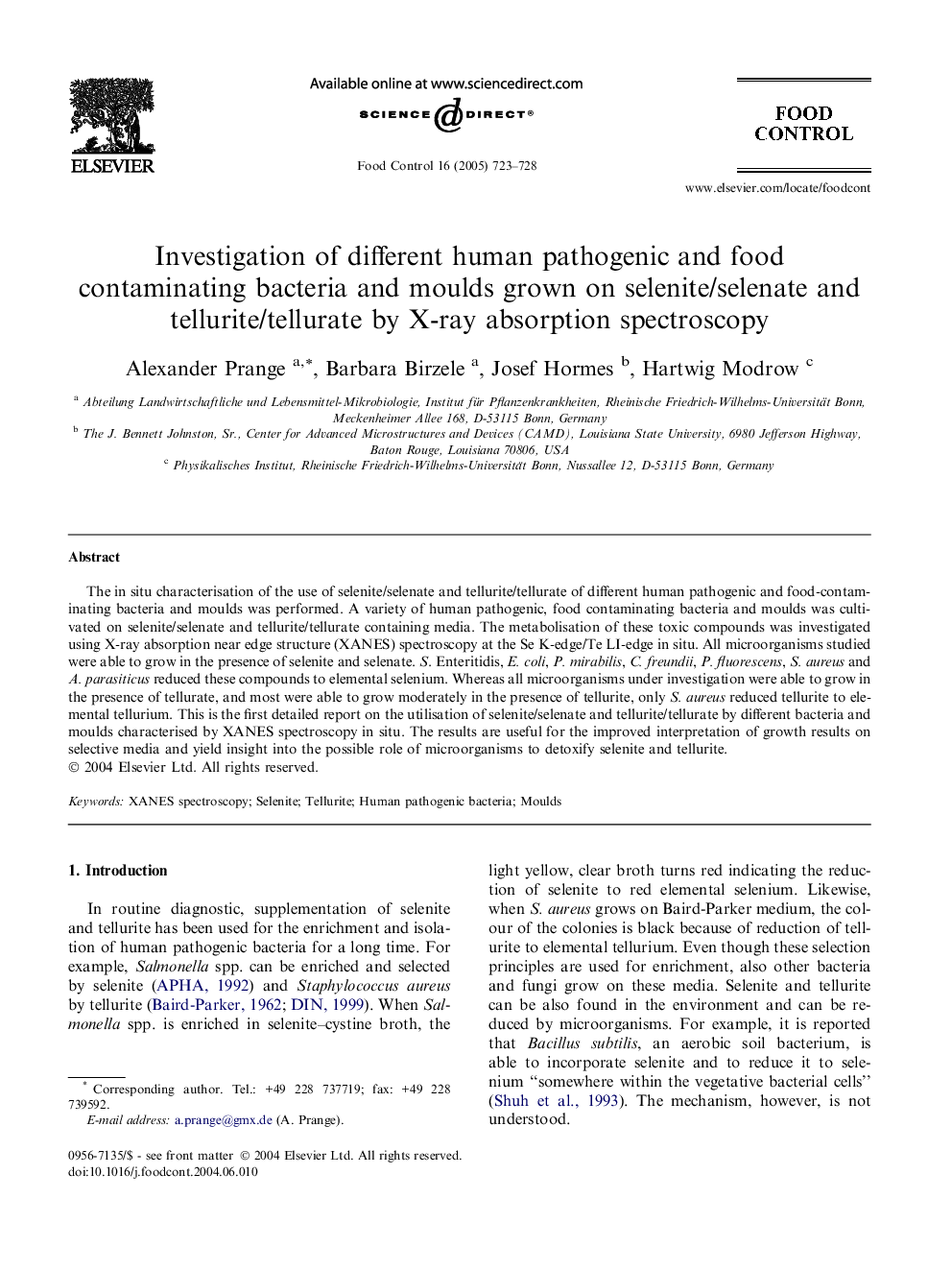| Article ID | Journal | Published Year | Pages | File Type |
|---|---|---|---|---|
| 9487210 | Food Control | 2005 | 6 Pages |
Abstract
The in situ characterisation of the use of selenite/selenate and tellurite/tellurate of different human pathogenic and food-contaminating bacteria and moulds was performed. A variety of human pathogenic, food contaminating bacteria and moulds was cultivated on selenite/selenate and tellurite/tellurate containing media. The metabolisation of these toxic compounds was investigated using X-ray absorption near edge structure (XANES) spectroscopy at the Se K-edge/Te LI-edge in situ. All microorganisms studied were able to grow in the presence of selenite and selenate. S. Enteritidis, E. coli, P. mirabilis, C. freundii, P. fluorescens, S. aureus and A. parasiticus reduced these compounds to elemental selenium. Whereas all microorganisms under investigation were able to grow in the presence of tellurate, and most were able to grow moderately in the presence of tellurite, only S. aureus reduced tellurite to elemental tellurium. This is the first detailed report on the utilisation of selenite/selenate and tellurite/tellurate by different bacteria and moulds characterised by XANES spectroscopy in situ. The results are useful for the improved interpretation of growth results on selective media and yield insight into the possible role of microorganisms to detoxify selenite and tellurite.
Related Topics
Life Sciences
Agricultural and Biological Sciences
Food Science
Authors
Alexander Prange, Barbara Birzele, Josef Hormes, Hartwig Modrow,
